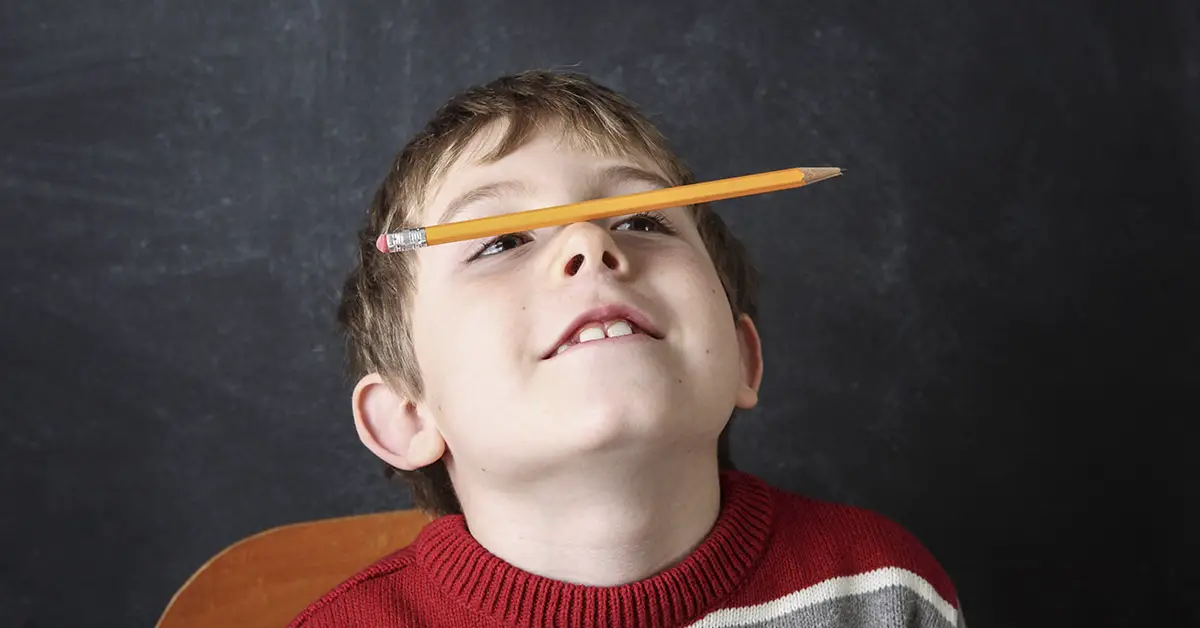A relatively new study seems to indicate that class clowns in middle school may be the smartest students in class. Class clowns have a bad rap for being attention-seeking, immature, and disruptive during lessons. However, researchers found a correlation between humor abilities and overall intelligence in their sixth- and seventh-grade participants.
Class Clowns May Be The Smartest Students
“We were particularly interested in the quality of humor made by children but evaluated by adults,” said lead study author and Anadolu University researcher Ugur Sak in a statement. “Parents and teachers should be aware that if their children or students frequently make good quality humor, it is highly likely that they have extraordinary intelligence.” [1]
The study is published in the International Journal of Humor Research. It involved 217 middle-school-aged kids from different schools across the mid-western region of Turkey. First, the students took the Anadolu Sak Intelligence Scale to assess their intellectual aptitude. They then filled out the Humor Ability Assessment Form, which involved ten cartoons with some or all dialogue missing. The children were instructed to fill in the empty dialogue boxes with their own jokes.
Seven experts, including five cartoonists and two “humor education” instructors, judged the captions using the Consensual Assessment Technique, which gives points for relevance and comprehension as well as a score based on how funny the experts found the cartoon. These ratings showed that students with better verbal reasoning skills and higher general intelligence scores also tended to write the funniest captions. [2]
“[Researchers] were looking at how these children reason. Are they able to think quickly on their feet? Do they have that memory center?” states Felice Martin, MS, NCC, LPC, a neuro-coach and neuro-leader at the Behavioral Health Associates of Georgia, LLC. “Are [children] able to relate humorous situations to past experiences, past exposures, maybe some things that they’ve read or some things that they’ve seen?” [4] This study shows that humor is a sign of children’s intelligence, which could help measure their progress in education and find ways to teach them more effectively.
Study Limitations
It’s also important to note the cultural context of the study. Humor is shaped by cultural norms, and what some people may find funny, others would not. What some deem clever, others find inappropriate. Similarly, class clowns and humor in children may be perceived differently depending on the case. Previous research on humor and intelligence has mostly taken place in Western cultures, but this study took place in Turkey, where there’s a mix of influences from Western and Eastern cultures. [3]
Children and Humor
Good humor has been a sign of intelligence throughout history. However, humor and intelligence don’t have as strong a correlation in adults, perhaps because adults use humor differently than kids. “While humor is frequently used for entertainment by adults, children use it mostly for peer acceptance,” Sak said. “Therefore, the nature of adult and child humor differ.“
Humor has many uses for children. They can use it to get attention and garner approval and acceptance from their peers. It could also be a helpful defense mechanism for kids to deflect negative attention and uncomfortable topics. But intelligence can be demonstrated based on how a child uses humor to their advantage.
“I believe that intelligence can play a part in a child’s ability to understand humor, in creating humorous material, and knowing how to deliver it in a comical way,” said Latoria Hairston, MA, CMFT, CPCS, CCTP, NCC, BC-TMH, a licensed professional counselor with The Latoria Group, LLC, Counseling Services. “The pent-up excitement that bubbles out as one gets closer and closer to the end of their joke or funny story can be contagious.”
More Signs of Intelligence in Children
Remember, if a child isn’t funny, that doesn’t mean they are unintelligent. Besides, the skills used by class clowns can be encouraged and cultivated, namely language skills, imagination, emotional understanding, and observation. Plus, children’s intelligence can be enhanced with activities that stimulate the brain’s left hemisphere, which is linked with logical thinking. These activities often give kids more comedic material to draw from, including experiences, phrases, and verbal reasoning. Plus, as any comedian or class clown would say, delivery is crucial to a good joke. And there are many other signs of intelligence in children, such as advanced vocabulary, curiosity, independence, information retention, and joy in discovering new interests. [5]
Keep Reading: Science Shows Having A Sister Makes You A Better Person
Sources
- “Class act: Clever children tell better jokes.” Eurekalert. De Gruyter.
- “Are more humorous children more intelligent? A case from Turkish culture.” De Gruyter. Deniz Arslan, Ugur Sak, and Nazmiye Nazli Atesgoz.
- “Study: Ability to produce humor linked to higher intelligence levels in schoolchildren.” Phys.org. Science POD.
- “A New Study Shows Humor and Intelligence in Kids Are Related.” Very Well Family. LaKeisha Fleming.
- “Is your kid gifted? Here are the signs, says performance expert—and how parents can raise exceptionally smart kids.” CNBC. Kumar Mehta.

